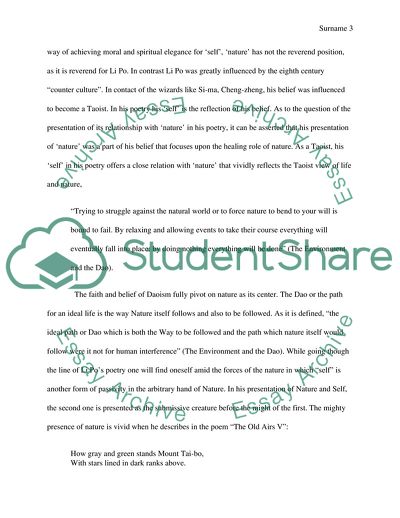Cite this document
(The Relationship between Self and Nature: Soul Seeking Serenity Assignment, n.d.)
The Relationship between Self and Nature: Soul Seeking Serenity Assignment. https://studentshare.org/philosophy/1718000-chinese-literature-pre-qin-to-tang
The Relationship between Self and Nature: Soul Seeking Serenity Assignment. https://studentshare.org/philosophy/1718000-chinese-literature-pre-qin-to-tang
(The Relationship Between Self and Nature: Soul Seeking Serenity Assignment)
The Relationship Between Self and Nature: Soul Seeking Serenity Assignment. https://studentshare.org/philosophy/1718000-chinese-literature-pre-qin-to-tang.
The Relationship Between Self and Nature: Soul Seeking Serenity Assignment. https://studentshare.org/philosophy/1718000-chinese-literature-pre-qin-to-tang.
“The Relationship Between Self and Nature: Soul Seeking Serenity Assignment”. https://studentshare.org/philosophy/1718000-chinese-literature-pre-qin-to-tang.


